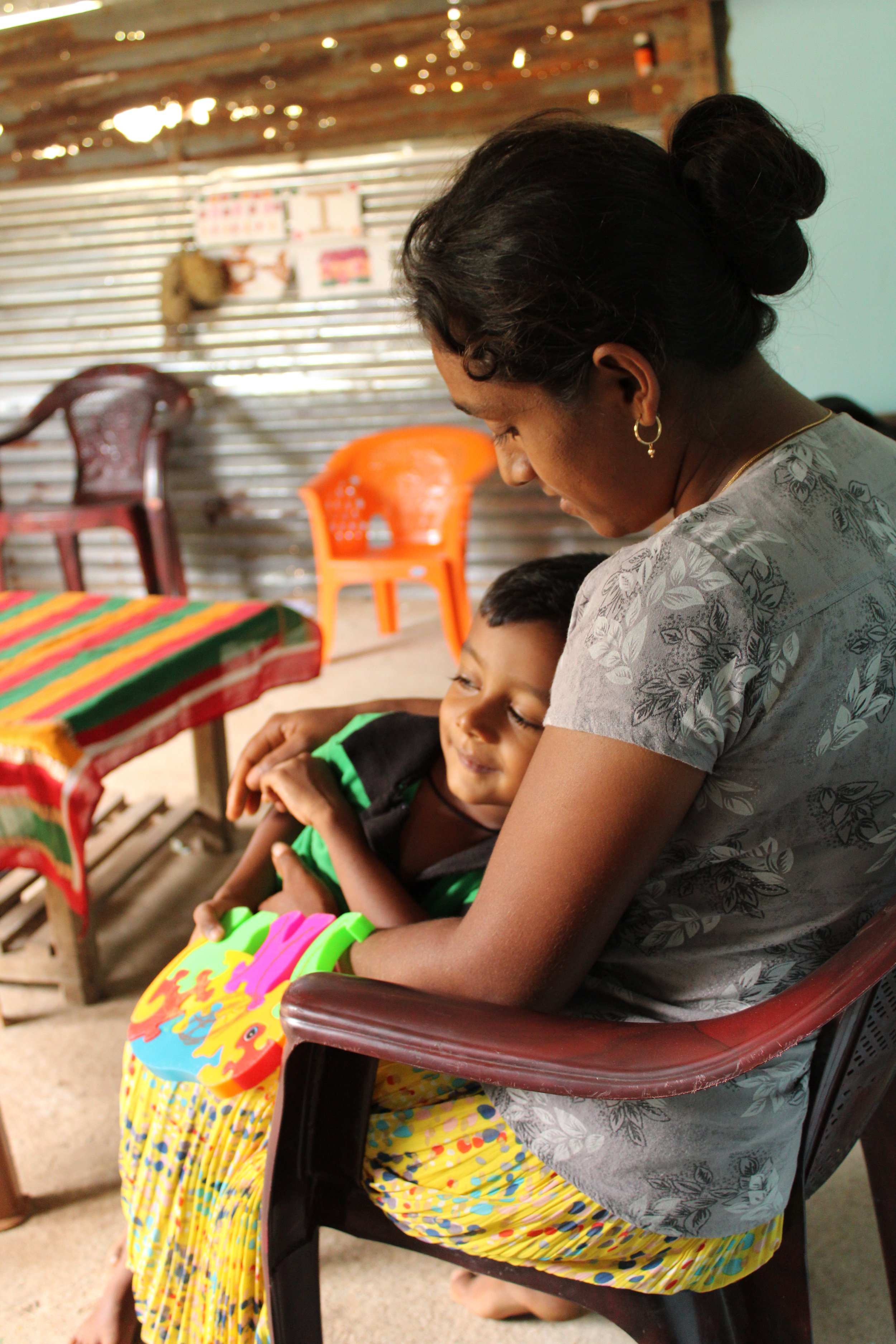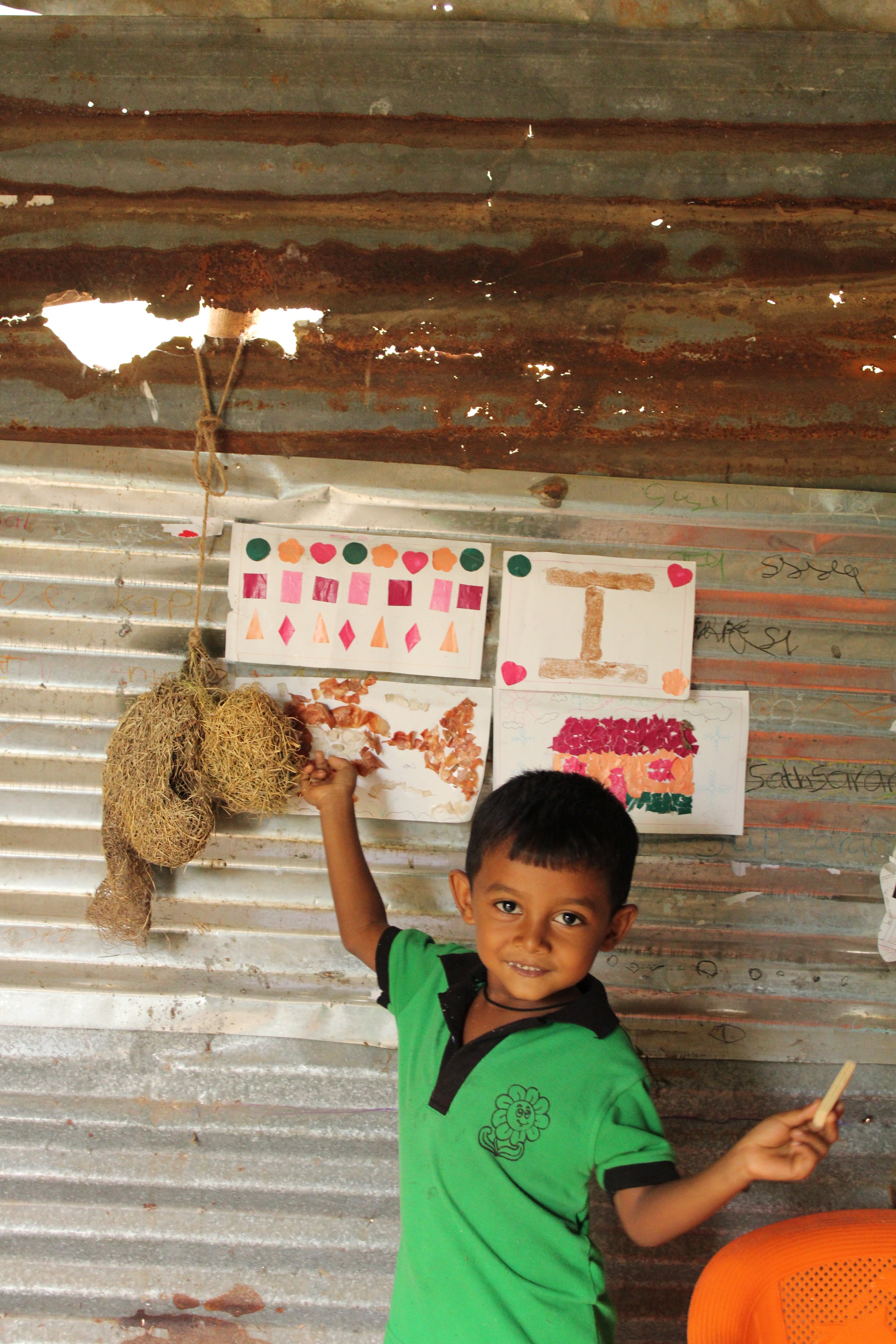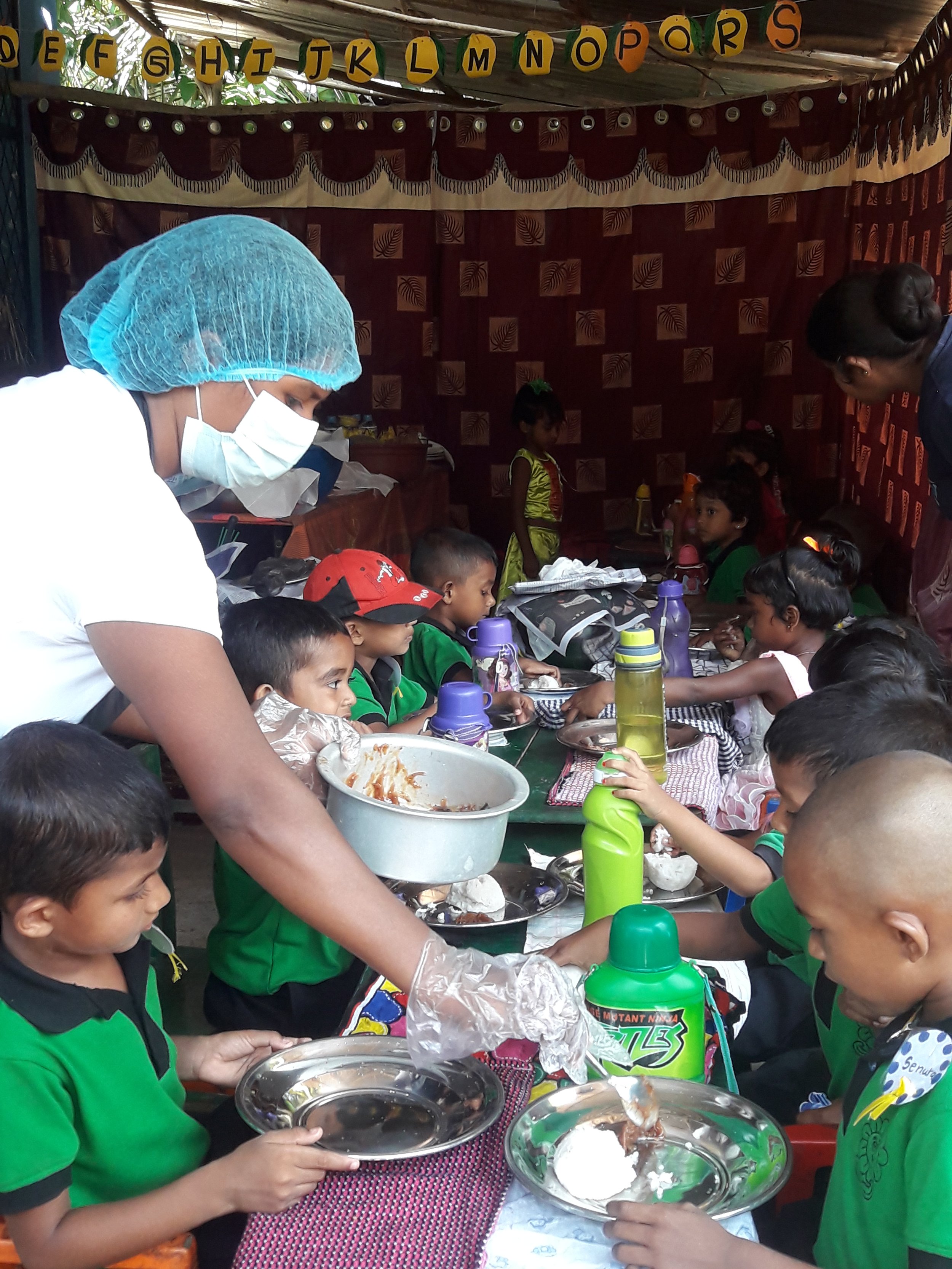Fuelling young minds with free preschool meals in Sri Lanka
Above: Chamod with his sister and cousin. Photo: Madara Gunawardana/World Vision Lanka
Preschoolers are tantrum experts. They can throw a tantrum about pretty much anything, which makes it extra hard when parents have to say no. But five-year-old Chamod is different. He doesn’t fuss -- except if he has to miss preschool.
“Unlike before, we are no longer able to buy him sweets or new clothes,” says his mother, Nimali. “He understands and bears it. But if I tell him that I’m unable to take him to preschool, then you will see his tantrum. He cries non-stop.”
Getting to his preschool is a challenge, but that doesn’t deter Chamod. A two-kilometre walk with his mother, which takes his little feet nearly an hour, does not dampen his enthusiasm. And Nimali is committed to taking him to preschool every day.
The only times he would miss out was when she was unable to bring food to the preschool.
Life has been extra hard for this economically vulnerable family over the last three years as Sri Lanka has faced a deepening economic crisis, compounded by the COVID-19 pandemic. The quarry where Chamod’s father, Gamini, worked closed down, leaving him out of a job and cutting off the family’s only income source.
“But we didn’t want to give up,” Nimali says, “We both started to bake bricks using the soil from our land. However, we didn’t realise our soil was not ideal for bricks and our attempt failed.”
“Then I started to cultivate a home garden so that our family could have something to eat, but most of all so that I could prepare meals for the preschool with what I have in my garden,” she says. “I started to grow a variety of vegetables.”
Above: Chamod with his mother Nimali, Chamod showing off his drawings and art, Children receiving their free meal at preschool. Photos: Madara Gunawardana/World Vision Lanka
Before, each mother at the preschool was assigned a day per month to provide meals for all the children. Affording a nutritious meal for 40 tummies was a big expense for mothers like Nimali, even if only once a month. If she couldn’t afford to provide food, she would keep Chamod home.
But the pressure of providing preschool meals has now been eased thanks to World Vision, supported by the Australian Government through the Australian Humanitarian Partnership response in Sri Lanka.
The response is targeting children and families at risk of food insecurity due to the economic crisis.
The national government has implemented an efficient program to provide primary school students with nutritious meals. But preschoolers, who are at a critical age for rapid physical, mental, and social growth, do not receive this assistance.
To close the gap, 1,500 preschoolers are benefitting from feeding programs under the AHP project, with nutritious mid-day meals rolled out at 100 preschools. This work is in addition to efforts to strengthen agriculture and dairy farming systems in Uva and the North Central Provinces to support medium-term recovery.
“Chamod loves the food at the preschool,” Nimali says. “Every day he would talk about what he ate and how tasty it was. He comes home with a full tummy and doesn’t get hungry until evening. I don’t have enough words to thank World Vision for this nutritious meal.”
Despite her best efforts, Nimali knew that Chamod and his sister weren’t getting enough nutrients from her garden-grown food alone, and Chamod was underweight.
Just one month after the meal program began, Chamod had gained 1.3kg, making great progress.
Nimali continues to grow her garden so that she can provide nutrition for her family’s meals at home. She also plans to earn an income by selling the excess produce.





